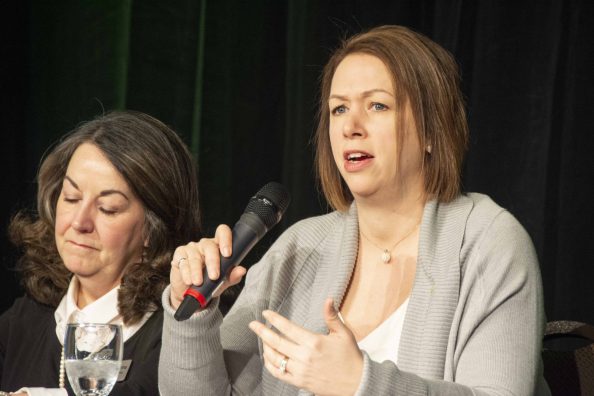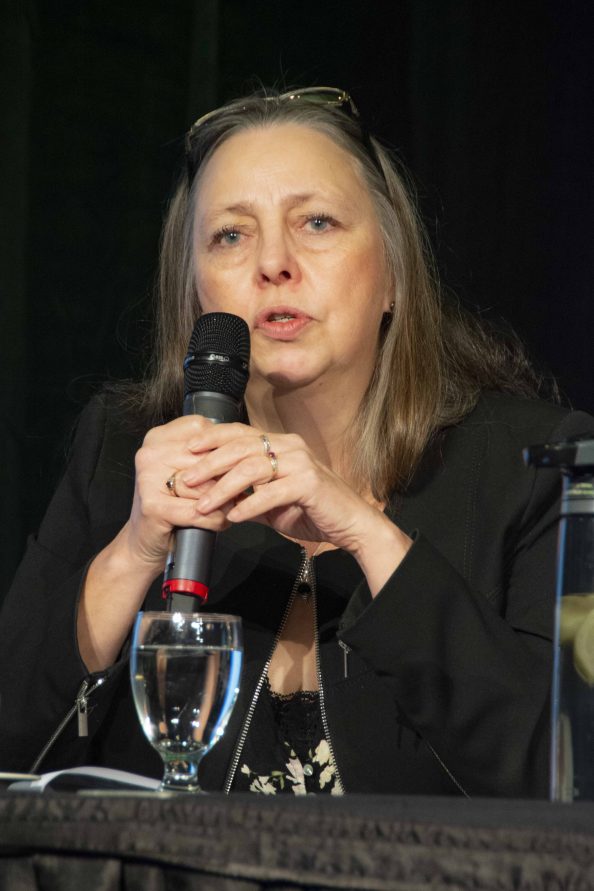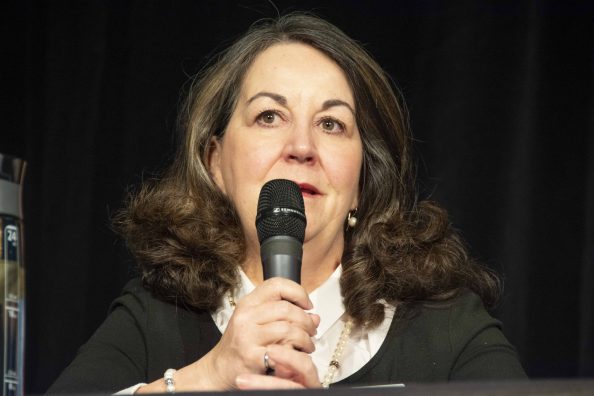 Early drafts of the recently assented Professional Governance Act—established by the BC government to “ensure the public interest and the environment are protected”—threatened to upset many of the pillars of professional regulators, according to the CEOs of the Association of BC Forest Professionals (Christine Gelowitz, RPF), Engineers and Geoscientists of BC (Ann English, P.Eng) and the College of Applied Biology (Christine Houghton). Speaking at the BC foresters AGM last week, the three CEOs spoke of the government’s rushed legislation, its lack of policy clarity, the cost implications, and future uncertainty given the broad discretion and far-reaching powers of the soon-to-be-established Office of the Superintendent. Also affected by the Act are the BC Institute of Agrologists and the Applied Science Technologists and Technicians of BC.
Early drafts of the recently assented Professional Governance Act—established by the BC government to “ensure the public interest and the environment are protected”—threatened to upset many of the pillars of professional regulators, according to the CEOs of the Association of BC Forest Professionals (Christine Gelowitz, RPF), Engineers and Geoscientists of BC (Ann English, P.Eng) and the College of Applied Biology (Christine Houghton). Speaking at the BC foresters AGM last week, the three CEOs spoke of the government’s rushed legislation, its lack of policy clarity, the cost implications, and future uncertainty given the broad discretion and far-reaching powers of the soon-to-be-established Office of the Superintendent. Also affected by the Act are the BC Institute of Agrologists and the Applied Science Technologists and Technicians of BC.
ABCFP’s Christine Gelowitz spoke of the significant changes for forest professionals, such as i) the enhanced duty to report (professionals will be expected to report all incidents of improper practice, short-circuiting the current obligation to talk to the member first), ii) conflict declarations (professionals will be required to declare any conflict of interest before beginning work on a project), and iii) the regulation of firms (the association will be responsible for regulating firms that employ forest professionals).
The most significant and positive change for biologists (and agrologists and technologists) is the addition of the Right to Practice, according to CAB’s Christine Houghton, although it will take time and be costly to implement given their small membership base. However, Houghton was concerned about the significant staff time involved to date, the increased admin demands going forward, and the potential that government will force the professions to pay for the Office of the Superintendent and its 14-16 people. The latter was the position of government before they agreed to defer the matter for at least two years.
APEG BC’s Ann English noted that for engineers, it was hard not to view the Professional Governance Act as a “solution looking for a problem”, given that less than 20% of her 35,000 membership work in the natural resource field and that they will have to decrease their council size from 16 to 12. Other concerns noted include the requirement for laypersons to be nominated to all committees and the potential for “unintended consequences” given the lack of detail on the role of the Office of the Superintendent.
Notwithstanding the concerns, all three association CEOs spoke of the potential benefits, the importance of continual improvement, and the opportunity to raise awareness of how professionals protect the public’s interest. The biggest unexpected bonus—said Gelowitz—is the newfound solidarity within the five regulatory groups. Their enhanced working relationship will benefit all of the associations, through a sharing of common interests and resources, forming a new force to be reconned with. Next steps include the soon-to-be-released Regulations Intention Paper, followed by the regulations as early as this Spring.



